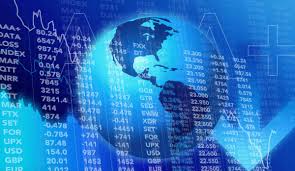Asian shares gain in cautious mood as U.S.-China tensions rise

Asian shares rose on Wednesday led by coronavirus vaccine hopes though sentiment was cautious after Beijing vowed retaliatory sanctions against the United States, while the euro rose to a four-month high ahead of a crucial EU summit.
The signal for European markets was strong with futures for eurostoxx 50 up 1.3% while those for Germany’s DAX added 1.3% and futures for London’s FTSE climbed 1%.
MSCI’s broadest index of Asia-Pacific shares outside Japan was last up 0.8%, not far from a recent five-month peak.
Chinese shares sold off, with the blue-chip CSI300 index flat and Shanghani’s SSEC off 0.3%. Hong Kong’s Hang Seng index ticked up after spending most of the day in the red.
Japan’s Nikkei and Australia’s benchmark index remained upbeat though, and were up 1.6% and 1.9%, respectively.
E-mini futures for the S&P 500 gave back some of their gains but were still up 0.8%
U.S. President Donald Trump on Tuesday ordered an end to Hong Kong’s special status under U.S. law to punish China for what he called “oppressive actions” against the former British colony, prompting a warning from China.
On Wednesday, China’s foreign ministry said in a statement Beijing will impose retaliatory sanctions against U.S. individuals and entities in response to the law targeting banks doing business with Chinese officials, though the statement released through state media did not reference Trump’s executive order.
“Hong Kong affairs are purely China’s internal affairs and no foreign country has the right to interfere,” the ministry said.
Overnight risk appetite was boosted by Moderna Inc’s experimental vaccine for COVID-19 which showed it was safe and provoked immune responses in all 45 healthy volunteers in an early-stage study.
On Tuesday, the Dow Jones Industrial Average rose over 2%, while the S&P 500 gained 1.34% and the Nasdaq Composite climbed 0.94%.
“Markets have traded sideways for over a month as bulls and bears move their bishops and horses out on the chess board and then hoard them back in when the other side makes a move. The net result has been a prolonged stalemate,” said Perpetual analyst Matthew Sherwood.
“Forward-looking assumptions about COVID-19 treatments and vaccine offset what is happening today in terms of rising case numbers and an unwinding or stalling of re-opening plans.”
The dollar was on the defensive, particularly against risk-sensitive currencies, following news of progress in vaccine development.
The euro went as high as $1.1423, its strongest since March 10 and not far off its peak so far this year of $1.1495. It was last at $1.1395.
The single currency has been helped by hopes the European Union could agree at its summit later this week on a rescue financing package that will limit the economic damage to the bloc from the pandemic.
The yen was little moved at 107.21 per dollar, off a two-week high of 106.635. The Bank of Japan kept monetary policy steady as expected, though it warned that uncertainty over the economic outlook was “extremely high” due to various risks, including rising coronavirus infections in the capital Tokyo.
The risk-sensitive Australian dollar, too, pared gains to be last up 0.2% at $0.6990.
There were signs of wariness among investors, as yields on leading U.S. and euro zone government debt fell and safe-haven gold prices solidified gains above $1,800 an ounce.
Spot gold rose to $1,809 an ounce.
Oil prices rose on Wednesday after a sharp drop in U.S. crude inventories. Brent crude futures were up 24 cents at $43.14 a barrel, and U.S. crude futures rose 22 cents to $40.50 a barrel.

